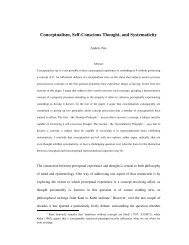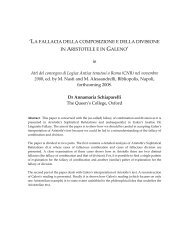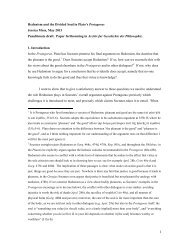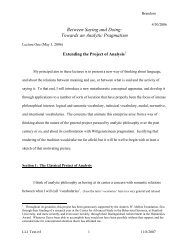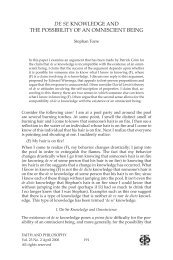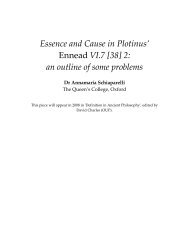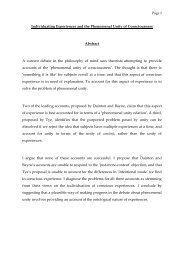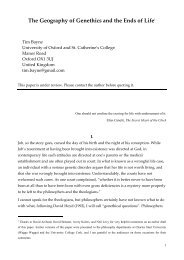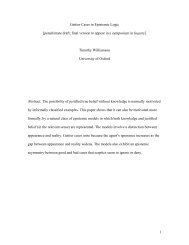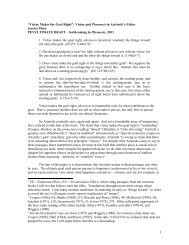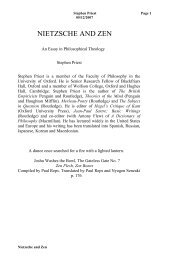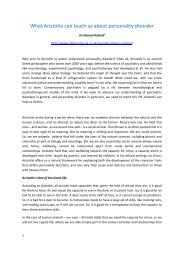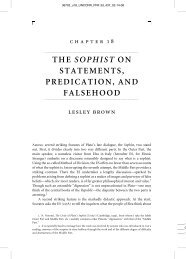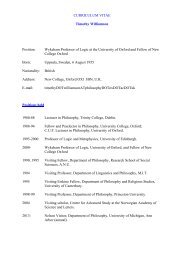Understanding as a Finite Ability Joseph K. Schear Christ Church ...
Understanding as a Finite Ability Joseph K. Schear Christ Church ...
Understanding as a Finite Ability Joseph K. Schear Christ Church ...
You also want an ePaper? Increase the reach of your titles
YUMPU automatically turns print PDFs into web optimized ePapers that Google loves.
To appear in Wittgenstein and Heidegger (Routledge, 2013) eds. D. Egan, S. Reynolds, and A.Wendland<br />
critique are advertised <strong>as</strong> “complete” and “certain” (CPR A13). The fragility of ontological<br />
understanding—the liability of the b<strong>as</strong>ic possibilities in terms of which things make sense to<br />
failure—is foreign to Kant’s thought. The finitude of death, in other words, h<strong>as</strong> no official place<br />
in Kant’s thought.<br />
Death, in Heidegger’s systematic ontology, marks a sense of radical futurity<br />
characteristic of existence, and therewith characteristic of human understanding. Death is<br />
officially the “horizon,” in the sense of limitedness, of understanding. While Heidegger is not the<br />
first to draw a constitutive link between death and human understanding—Hegel is one notorious<br />
predecessor—no philosopher h<strong>as</strong> given death a more fundamental place. By “death” Heidegger<br />
does not mean biological death or croaking (“perishing”). Nor does he mean the biographical<br />
death of the obituary (“demise”). Death is no impending storm, for it is not an event at all:<br />
“[D<strong>as</strong>ein] does not have an end at which it just stops, but it exists finitely” (BT 329/378). Death<br />
for D<strong>as</strong>ein is “a way to be, which D<strong>as</strong>ein takes over <strong>as</strong> soon <strong>as</strong> it is” (BT 245/289).<br />
Death, that is, is no more and no less than “being-towards-death.” To be toward death is<br />
to live in a manner that is oriented by the possibility of one’s own impossibility, the possibility of<br />
“no-longer-being-able-to-be-there” (BT 250/294). Being able to be there, in Heidegger’s<br />
technical use of that phr<strong>as</strong>e, is being able to render the entities there, in the world, intelligible in<br />
their being. So the possibility of one’s own impossibility—the possibility of being unable to<br />
be—is the possibility of the comprehensive breakdown of the understanding in terms of which<br />
entities make sense. This would coincide with a breakdown in one’s self-understanding. For the<br />
shape of who one is, the sense of one’s life <strong>as</strong> meaningful, is given by the possibilities of making<br />
sense that one’s ontological understanding makes available. Death, then, is the essentially<br />
threatened character of human understanding. The threat is one of unintelligibility, of a



